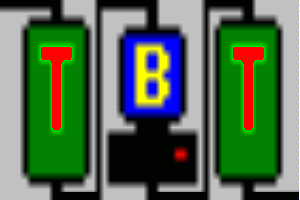
 Cycle
Chemistry
Cycle
Chemistry
One of the basic directions of TWT Department is optimization of cycle
chemistry at fossil and nuclear power plants.
Water used for boiler operation, contains various impurities which can
not be removed even with up-to-date water treatment processes. In addition,
water in the power plant cycle may be contaminated with metal corrosion
products, i.e. iron and copper compounds. Water impurities are deposited
on heat-exchange surfaces or go to steam with subsequent deposition in
turbine. Therefore, it is very important to study an influence of physical-chemical
factors on deposition and carry-over of different impurities from water
to steam.
Knowledge of different laws provides proper selection of controlling
chemicals. This may result in an increase in operational reliability and
efficiency of power-generating equipment.
For example, a lot of work has been done with participation of TWT personnel
to introduce oxygenated treatment of feedwater at fossil power plants and
hydrogen treatment of electric generator cooling systems.
A method of cleaning of heating water heaters from deposits was developed
at TWT Department.
At present TWT Department and Scientific and Training Centre of Geothermal
Energy (STS Geo) do a joint research work under agreement with Electric
Power Research Institute (EPRI), USA, to improve turbine steam chemistry.
The department has test rigs operating at pressure range from atmospheric
to 200 atm and temperature range from 25 to 500 °C, where behaviour of
(a) construction materials under operational conditions of power-generating
units and (b) different impurities in liquid and steam phases are studied.
Corrosion occurs not only during operation of equipment, but also during
outages. One of the tasks of the utility personnel is to minimize downtime
corrosion failures of equipment.
TWT Department, together with some other institutions, implements one
of filming amines - octadecylamine - for equipment layup at power plants.
TWT Department has up-to-date instruments to determine low levels (1-2
ppb) of impurities (among them chloride, sulfate, phosphate, nitrate, nitrite,
acetate (anion of acetic acid), formate (anion of formic acid), oxalate,
ammonia, potassium, sodium, iron, copper etc.) in water and steam (ion
chromatograph DIONEX (USA), atomic absorption spectrophotometer AAS-3 (Germany)
etc.). We also have Orion on-line sodium analyzer (USA) to determine low
( down to 0.5 ppb) sodium levels in water and steam.
This provides TWT Department with stable future and further research
aimed to solve acute chemistry problems at fossil and nuclear power plants.
For more information please contact: Dr. Tamara
Petrova and Dr. Prof.Olga
Martynova
Translated by A. Petrov petrova@twt.mpei.ac.ru
16.04.97
 Any comments and suggestions send to Post-Master
Any comments and suggestions send to Post-Master 


 Cycle
Chemistry
Cycle
Chemistry